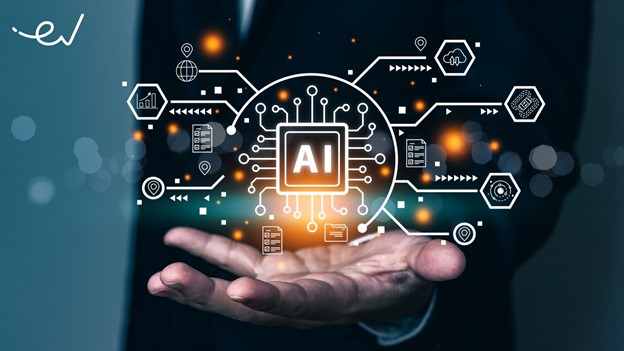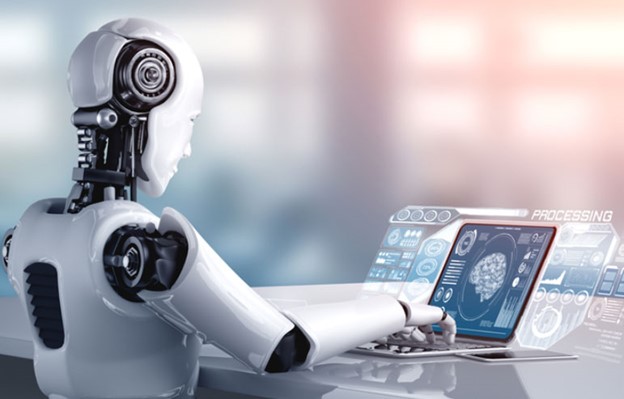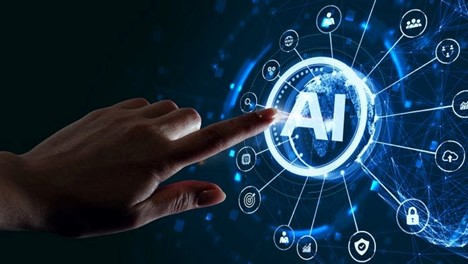Artificial Intelligence : The Wonders of Tomorrow
Introduction
Artificial Intelligence (AI) is a groundbreaking field that has captured the imagination of scientists, researchers, and enthusiasts alike. Defined as the simulation of human intelligence in machines, AI has a rich historical background.

Types of Artificial Intelligence
There are various types of AI, ranging from Narrow AI, designed for specific tasks, to General AI, which possesses human-like cognitive abilities. Machine Learning and Deep Learning are crucial subsets of AI that have propelled its advancements.
Applications of Artificial Intelligence
AI’s influence is pervasive across industries. In healthcare, it aids in diagnostics and personalized medicine. In finance, it powers algorithmic trading and fraud detection. Manufacturing benefits from AI-driven automation, while customer service sees improvements through chatbots and virtual assistants.
Advantages of Artificial Intelligence

The advantages of AI are manifold. It enhances efficiency, automates repetitive tasks, and enables in-depth data analysis, providing valuable insights for decision-making.
Challenges and Concerns
However, the rapid evolution of AI brings challenges, including ethical concerns, job displacement, and biases in algorithms. Ethical considerations in AI development are becoming increasingly important.
Future Trends in Artificial Intelligence
The future promises exciting trends, such as AI in robotics, education, and the ethical development of AI. These trends are poised to reshape how we interact with technology.
Impact of AI on Society

The impact of AI on society is a double-edged sword. While it brings about positive changes like improved healthcare and increased efficiency, it also raises concerns about job displacement and ethical implications.
The Role of Big Tech in AI Development
Big Tech companies play a pivotal role in AI development, leading the way with groundbreaking innovations. However, this dominance also raises ethical questions about their responsibilities in AI development.
The Future of Artificial Intelligence
Predicting the future of AI involves considering its integration into various aspects of human life. As technology advances, so does the intertwining of AI with daily activities, revolutionizing how we live.
The Future of Artificial Intelligence
Predicting the future of AI is an exercise in envisioning the integration of this technology into the fabric of human existence. From enhancing daily tasks to reshaping entire industries, AI is poised to become an indispensable part of our lives. However, with this integration comes the need for responsible development, addressing ethical concerns, and establishing clear regulations.
You May Also Like: Quantum Computing: Potential beyond Binary
As technology advances, we may witness AI contributing significantly to fields such as education. Personalized learning experiences, AI-driven tutors, and adaptive curricula could revolutionize the way we acquire knowledge. However, this evolution also demands a thoughtful approach to ensure that technology enhances education without compromising human connections.
Conclusion
Artificial Intelligence is a force that cannot be ignored, and its impact on society is profound. As we navigate the uncharted waters of AI development, ethical considerations, regulations, and responsible innovation become paramount.
FAQs
Is AI a threat to job security?
While AI may lead to job displacement in some sectors, it also creates new opportunities and industries.
How can we address biases in AI algorithms?
Addressing biases in AI requires a concerted effort in data collection, algorithm design, and ongoing monitoring.
What role do ethics play in AI development?
Ethics is crucial in AI development to ensure responsible innovation, protect user privacy, and prevent misuse of technology.
What are the potential downsides of AI in healthcare?
Downsides may include data privacy concerns, over-reliance on technology, and the need for ethical guidelines in medical AI.
How can individuals prepare for the future impact of AI on jobs?
Continuous learning, adaptability, and developing skills that complement AI capabilities can prepare individuals for the changing job landscape.

